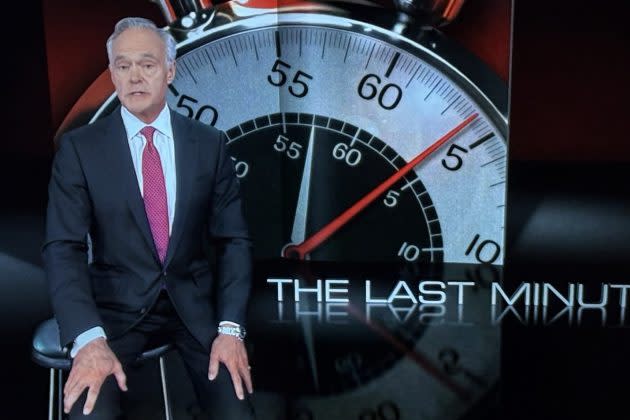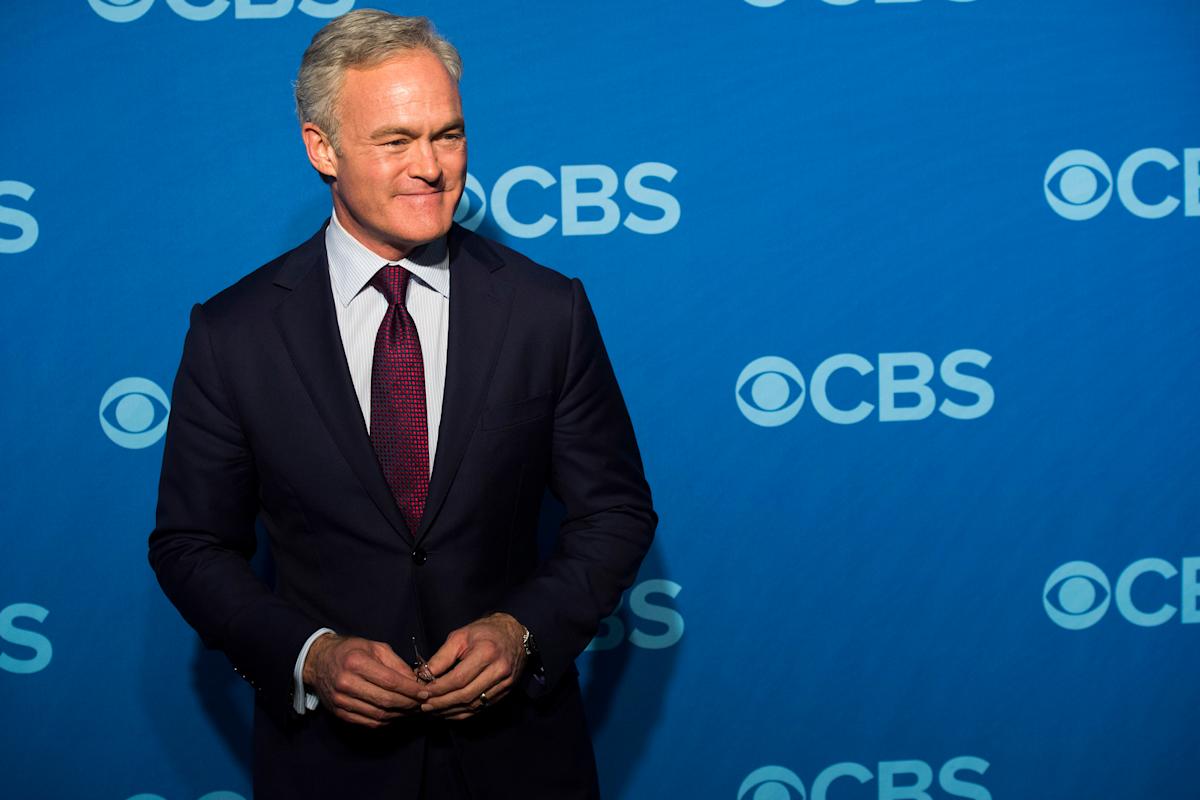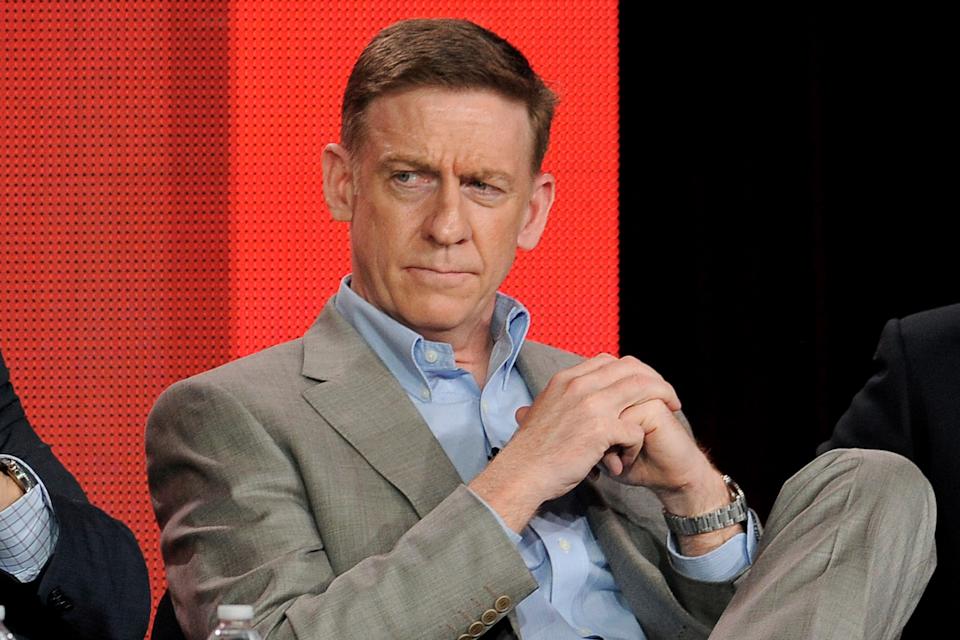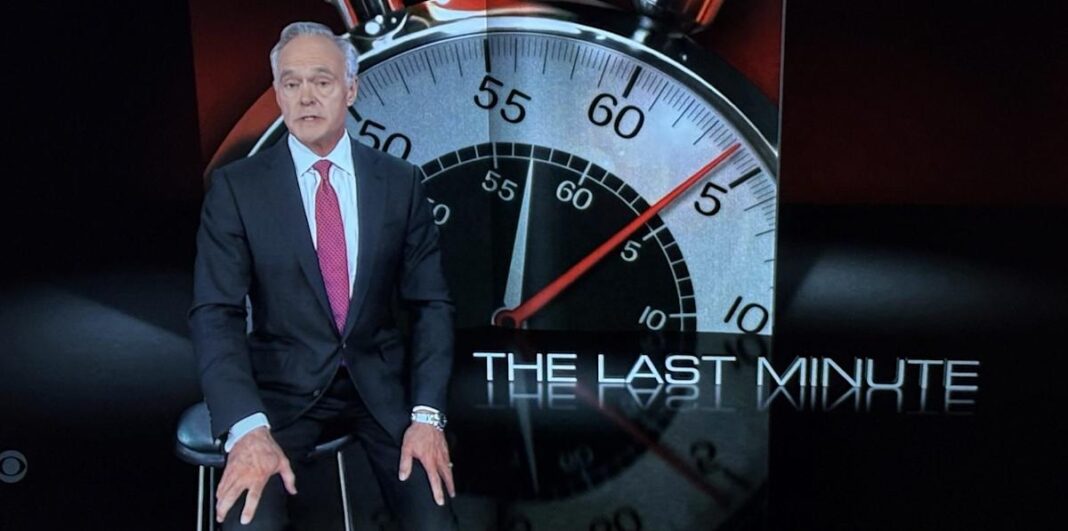In a bold and unprecedented move, the iconic news magazine ’60 Minutes’ has taken to the airwaves to call out its own network, Paramount, over the sudden departure of an executive producer. This rare on-air rebuke has sent shockwaves through the media industry, leaving many to wonder what prompted this extraordinary display of candor. As the curtain is pulled back on the inner workings of one of television’s most revered institutions, a larger question emerges: what secrets lie beneath the surface of the cutthroat TV news business? In this extraordinary moment of transparency, ’60 Minutes’ has opened a window into the often-opaque world of network politics, and what we’re seeing is a drama that’s equal parts fascinating and disturbing.
The Sudden Departure of Bill Owens

In a shocking turn of events, Bill Owens, the executive producer of 60 Minutes, announced his departure from the show last week. This unexpected exit has sent ripples throughout the journalism community, with many wondering what led to Owens’ decision to leave the esteemed program.

Executive Producer’s Unexpected Exit: Understanding the Reasons Behind
Owens, who has been at the helm of 60 Minutes for several years, cited a lack of independence in his decision-making as the primary reason for his departure. According to Owens, Paramount Global, the parent company of CBS News, has been exerting increased scrutiny and supervision over the show’s editorial processes, which has limited his ability to make independent decisions.
In a rare on-air rebuke, correspondent Scott Pelley addressed the situation, stating that “none of us is happy” about the changes that led to Owens’ departure. Pelley explained that Paramount has begun to supervise 60 Minutes’ content in new ways, which has resulted in an increased layer of editorial supervision.

Impact on the Team: “None of Us Is Happy” About the Changes
The departure of Owens has sent shockwaves throughout the 60 Minutes team, with many feeling that the increased scrutiny and supervision from Paramount Global has compromised their journalistic independence. Pelley’s on-air statement was an unusual peek behind the scenes, revealing the inner turmoil that viewers seldom get to see.
Owens’ resignation has sparked concerns about the future of 60 Minutes and its ability to maintain its independence in the face of increased corporate oversight. The show’s correspondents and producers are known for their fearless reporting and commitment to journalistic integrity, and many worry that the changes will compromise their ability to produce high-quality, investigative journalism.
The Changing Landscape of “60 Minutes”
The departure of Owens marks a significant shift in the landscape of 60 Minutes, a show that has been synonymous with journalistic excellence for nearly six decades. The increased scrutiny and supervision from Paramount Global has raised questions about the show’s ability to maintain its independence and continue producing high-quality journalism.
Increased Scrutiny and Supervision: Paramount’s New Editorial Process
Paramount Global’s decision to increase supervision over 60 Minutes’ editorial processes has sparked controversy and concern among journalists and media critics. The move is seen as an attempt to exert greater control over the show’s content, which has traditionally been known for its fearless reporting and commitment to journalistic integrity.
The new editorial process, which includes the appointment of Susan Zirinsky as interim executive editor, has been met with skepticism by many in the journalism community. Zirinsky, a veteran producer and former CBS News president, has been tasked with overseeing standards and helping to vet stories and journalistic practices.
The Role of Susan Zirinsky: Vetting Stories and Journalistic Practices
Zirinsky’s appointment has sparked debate about the role of corporate oversight in journalism. Many argue that the increased scrutiny and supervision will compromise the show’s independence and ability to produce high-quality, investigative journalism.
Owens’ resignation has highlighted the tensions between corporate interests and journalistic independence. As the media landscape continues to evolve, the role of corporate oversight in journalism will remain a contentious issue.
Independence and Autonomy in Journalism
The departure of Owens and the increased scrutiny and supervision from Paramount Global have sparked a wider debate about the importance of independence and autonomy in journalism. The ability of journalists to produce high-quality, investigative journalism without fear of interference or censorship is essential to a healthy democracy.
The controversy surrounding 60 Minutes highlights the ongoing struggle between corporate interests and journalistic independence. As the media landscape continues to evolve, it is essential that we prioritize the importance of independence and autonomy in journalism.
The Value of Independence in Reporting: Bill Owens’ Stance
Bill Owens, the executive producer of “60 Minutes,” has made headlines by resigning from his position, citing the loss of independence in his work. According to Owens, he was no longer able to make independent decisions based on what was right for “60 Minutes” and what was right for the audience. This sentiment echoes the importance of independence in reporting, as it allows journalists to hold power accountable and pursue stories that may not be popular but are in the public interest.
As Owens stated, “Paramount began to supervise our content in new ways. None of our stories has been blocked, but Bill felt he lost the independence that honest journalism requires.” This emphasis on independence highlights the importance of journalistic autonomy in producing high-quality reporting.
The Consequences of Corporate Interference: A Threat to Honest Journalism
Corporate interference in the editorial process can have severe consequences for the integrity of journalism. When corporate leaders insert themselves into the editorial process, it can lead to a loss of independence and a decrease in the quality of reporting. This is particularly concerning in the case of “60 Minutes,” which has long been known for its commitment to in-depth reporting and its ability to hold power accountable.
The insertion of Susan Zirinsky, a veteran producer and former CBS News president, as “interim executive editor” to oversee standards and help vet stories and journalistic practices, has raised concerns about corporate interference in the editorial process. This move has led to a loss of trust among “60 Minutes” producers, who feel that their autonomy is being eroded.
The Backlash Against “60 Minutes”
President Trump’s Lawsuit Against CBS News: Allegations of Misleading Voters
President Trump has filed a lawsuit against CBS News, alleging that “60 Minutes” tried to mislead voters by airing two different edits of remarks made in an interview with former Vice President Kamala Harris. Trump claims that the edits were designed to make him appear more unfavorably, which is a serious allegation that could have significant implications for the integrity of the reporting process.
However, many legal experts have expressed doubt about the legal standing of Trump’s lawsuit, and it is unclear whether it will be taken seriously by the courts. Regardless, the lawsuit has sparked a heated debate about the role of journalism in holding power accountable and the importance of ensuring the accuracy and integrity of reporting.
The Implications of Corporate Pressure on Journalistic Integrity
The lawsuit against “60 Minutes” has also highlighted the implications of corporate pressure on journalistic integrity. When corporate leaders insert themselves into the editorial process, it can lead to a loss of trust among journalists and a decrease in the quality of reporting. This is particularly concerning in the case of “60 Minutes,” which has long been known for its commitment to in-depth reporting and its ability to hold power accountable.
The tension between corporate interests and journalistic integrity is a long-standing one, and it is unclear how it will be resolved in the case of “60 Minutes.” However, it is clear that the integrity of the reporting process is at stake, and that the public has a right to expect high-quality, accurate reporting from journalists.
The Future of “60 Minutes”
Navigating the Changing Media Landscape: Challenges Ahead
The challenges facing “60 Minutes” are not unique to the program, but rather reflect the broader challenges facing the media industry as a whole. In an era of increasing corporate consolidation and decreasing trust in institutions, it is more important than ever for journalists to maintain their independence and commitment to in-depth reporting.
The changing media landscape presents a number of challenges for “60 Minutes,” including the need to adapt to new technologies and platforms, and the need to maintain its commitment to in-depth reporting in an era of increasing fragmentation and decreasing attention spans.
The Importance of Upholding Journalistic Standards in the Face of Adversity
Despite the challenges facing “60 Minutes,” it is clear that the program remains committed to upholding journalistic standards. The emphasis on independence and integrity in reporting is essential to the program’s success, and it is crucial that journalists continue to hold themselves to high standards in the face of adversity.
The importance of upholding journalistic standards cannot be overstated. When journalists compromise their integrity, it can have serious consequences for the public’s trust in institutions and for the quality of reporting. It is essential that journalists maintain their commitment to in-depth reporting and uphold high standards, even in the face of adversity.
Conclusion
In conclusion, the recent “60 Minutes” segment that publicly addressed the departure of its Executive Producer, Ira Rosen, has sent shockwaves throughout the media industry. The on-air rebuke, a rare move for the esteemed news program, has brought to light the behind-the-scenes dynamics at Paramount and raised important questions about the role of corporate influence in journalism. At its core, this controversy highlights the tension between the pursuit of truth and the business interests of media conglomerates.
The significance of this incident cannot be overstated. As one of the most respected news programs in the country, “60 Minutes” has a responsibility to uphold the highest standards of journalism. By speaking out against Paramount’s handling of Rosen’s departure, the show’s correspondents have taken a bold stance in defense of editorial independence. This move has far-reaching implications for the future of journalism, as it underscores the importance of safeguarding against corporate interference in the reporting process. As the media landscape continues to evolve, it is essential that news organizations prioritize transparency and accountability to maintain the trust of their audiences.
Ultimately, the “60 Minutes” controversy serves as a stark reminder that the pursuit of truth is often at odds with the interests of those in power. As we move forward, it is imperative that journalists and media outlets remain vigilant in their commitment to uncovering the truth, even when it means challenging those who wield power and influence. Only by doing so can we safeguard the integrity of our democratic institutions and ensure that the voices of the people are heard. The question remains: will other news organizations follow “60 Minutes”‘ lead and prioritize the pursuit of truth over corporate interests, or will they succumb to the pressures of the bottom line?
